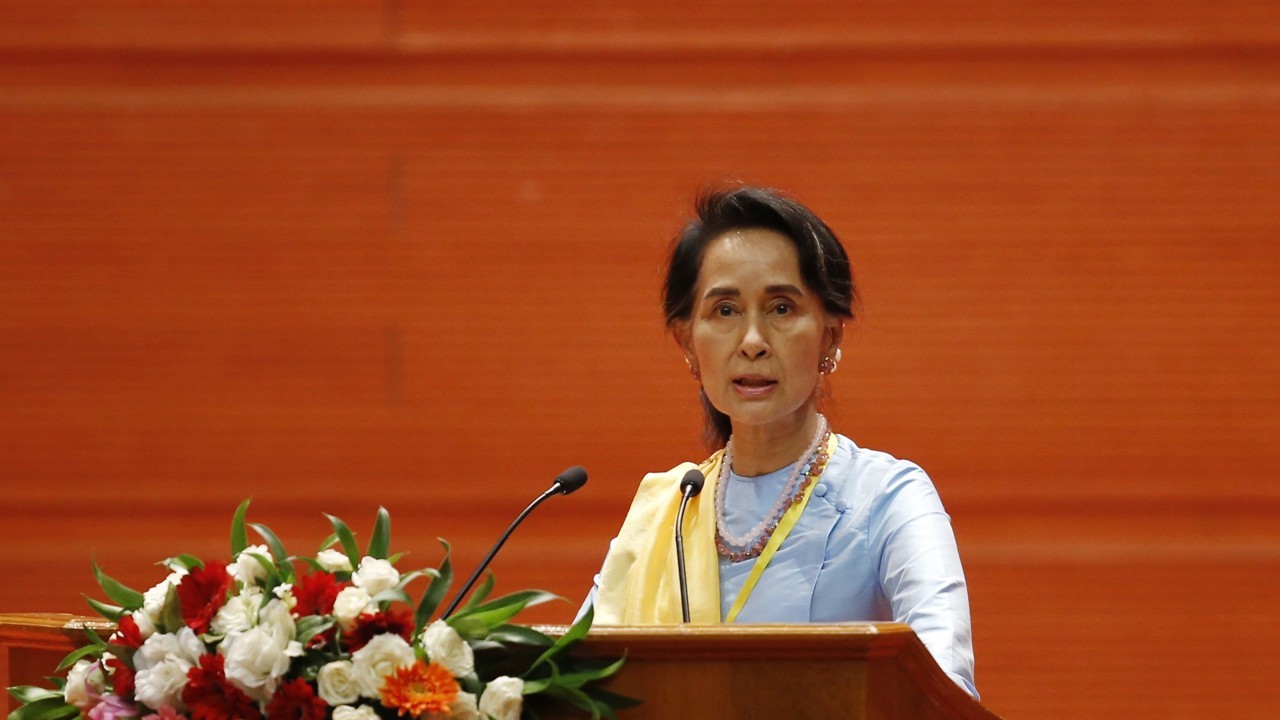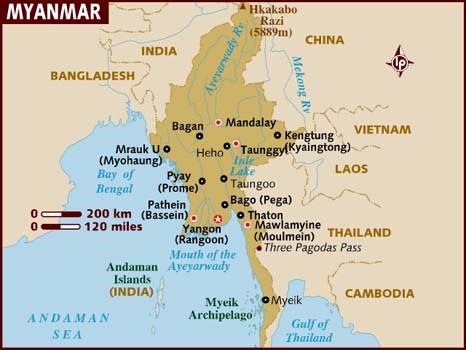Democracy in Myanmar
January 10, 2018 | Expert Insights

European Union through a strongly worded letter to Myanmar’s leader Aung San Suu Kyi has raised concern over the detention of the journalists and the implications that holds for the nation’s nascent democracy.
The two reporters were detained in December 2017 and had been covering the Rohingya exodus crisis in the state of Rakhine.
Background
Myanmar is a sovereign state located in the Southeast Asian region. Early civilisations in Myanmar included the Tibeto-Burman-speaking Pyu city-states in Upper Burma and the Mon kingdoms in Lower Burma. Modern Myanmar (previously known as Burma) was under the rule of an oppressive military junta from 1962 to 2011. The generals who ran the country suppressed almost all dissent. The largest ethnic group in the country are the Burman or the Burmar people. The dominance of this ethnic group has resulted in rebellions against other minority groups.
Aung San Suu Kyi is the de facto leader of Myanmar. In 2015, she led her political party, the National League for Democracy (NLD), to a majority win in Myanmar's first openly contested election in 25 years. In the 1990 elections, NLD won 81% of the seats in Parliament, but the results were nullified, as the military refused to hand over power, resulting in an international outcry. She had, however, already been detained under house arrest before the elections. She remained under house arrest for almost 15 of the 21 years from 1989 to 2010, becoming one of the world's most prominent political prisoners. She was awarded the Nobel Peace Prize for her efforts to bring democracy to Myanmar.
However, despite being hailed as a universal symbol for fighting oppressive powers, she has been criticized for allowing oppression since coming to power. She has incurred harsh criticism in particular regarding the government’s treatment of Rohingya Muslims. The Rohingya are an ethnic Muslim minority group from Myanmar’s western Rakhine state. Fresh bout of violence erupted in Myanmar on August 25th, 2017. Around 650,000 Rohingya Muslims fled the region as a direct result of it. This has triggered one of the largest refugee crisis ever witnessed in Asia. UN Secretary-General Antonio Guterres said that the violence in the region has "spiraled into the world's fastest-developing refugee emergency, a humanitarian and human rights nightmare." He added, “We've received bone-chilling accounts from those who fled, mainly women, children and the elderly.”

Analysis
On December 12th 2017, two journalists from Reuters agency were detained in Myanmar. They are: Wa Lone, 31, and Kyaw Soe Oo, 27. The country stated that they were being investigated on suspicion of breaching the Official Secrets Act. This is a little used law that dates back to the days of the British colonial rule.
The two men had covered the Rohingya crisis in Rakhine. European Union through a strongly worded letter to Aung San Suu Kyi has raised concern over the detention of the journalists and the implications that has for the country’s democracy.
Kristian Schmidt, the European Union’s envoy to the Myanmar wrote, “This situation amounts to a serious intimidation against journalists in general and from Reuters in particular. Journalists should ... be able to work in a free and enabling environment without fear of intimidation or undue arrest or prosecution. We therefore call on your government to provide the necessary legal protection for these two journalists, to ensure the full respect of their fundamental rights and to release them immediately.”
The European Union is the latest among other international organizations including the UN to call for the release of the journalists. United States, Britain and Canada are among the nations from across the world who have also raised concerns regarding the detention. Former US President Bill Clinton took to Twitter noting, ““A free press is critical to a free society - the detention of journalists anywhere is unacceptable. The Reuters journalists being held in Myanmar should be released immediately.”
The Ministry of Information has cited the police as saying the two reporters were “arrested for possessing important and secret government documents related to Rakhine State and security forces.”
Assessment
Our assessment is that despite being regarded the hope and savior of Myanmar’s democracy, Aung San Suu Kyi’s government has remained starkly silent over the criticism of the Rohingya crisis. Access to Rakhine has been tightly controlled by the military with journalists not allowed to report from there. A free and fair press is one of the main tenets of a healthy democracy and the detention of the reporters from Reuters indicates that Myanmar has still a long way to go before achieving that.








Comments